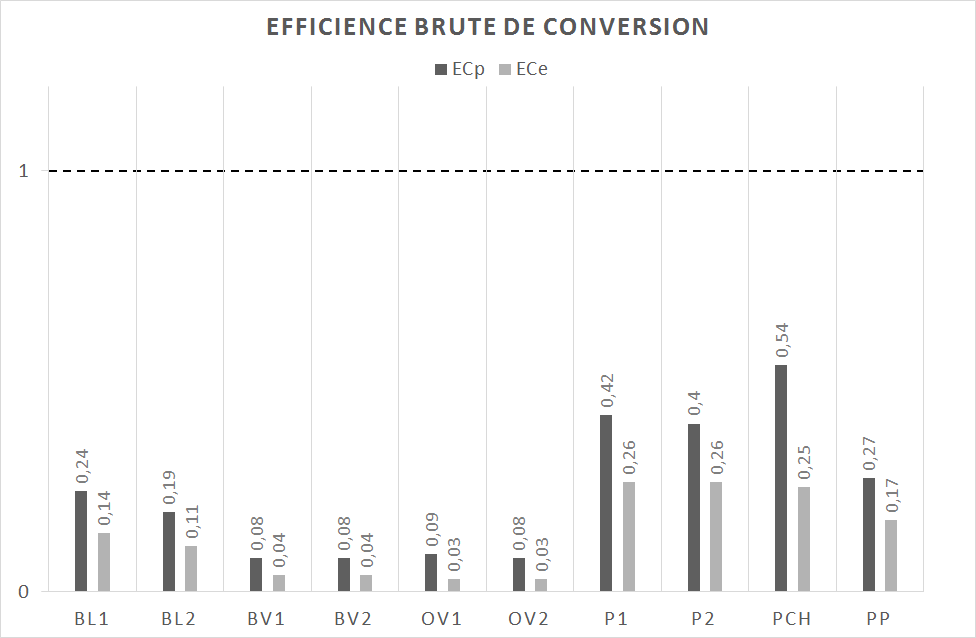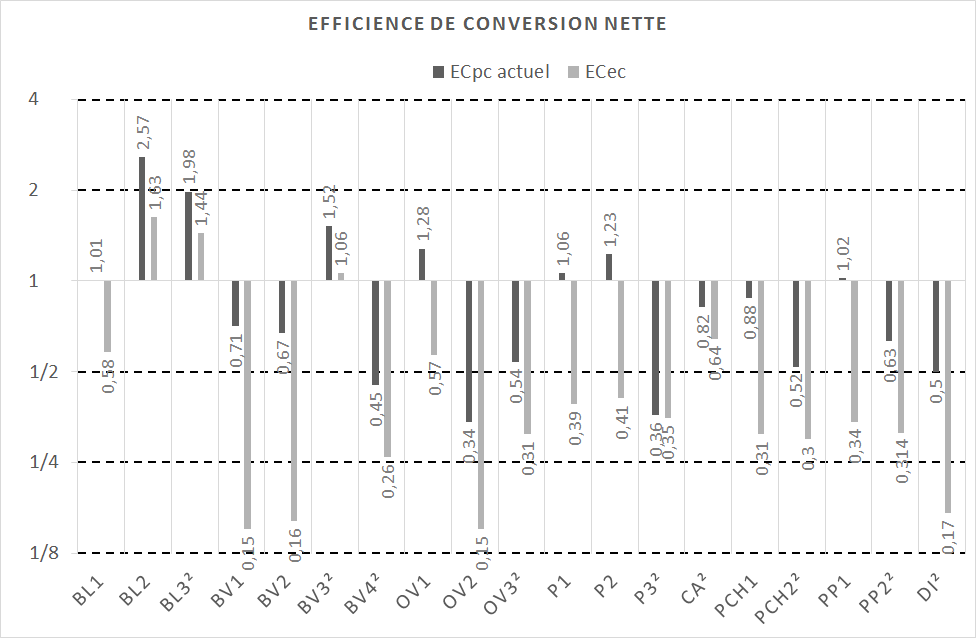sicetaitsimple wrote:
!!!!!!!!!!!! Are you kidding or what?
It was not me who took this value of 70kg / day out of the hat to compare it to 20, while also advising not to forget to multiply it by 730 (in the case of beef)!
Well, okay, it was not clear what it was that these 70kg / d ...
This value is not "taken from a hat", 70kg days are the official figures:
The cow is a ruminant herbivore whose diet consists exclusively of plants. She thus produces milk from grass (60 to 80 kg per day), which it consumes in forms whose balance varies according to the season, the climate, the region of breeding, the species, the age of the animals and the main type of production (meat or milk):
https://www.produits-laitiers.com/article/mangent-les-vaches-laitieresI think you did not understand my remark, I resume:
To my knowledge, most cows eat grass, and little grain, or as a supplement.
In the criticisms made on the consumption of meats the figures advanced are 15 liters of water for 000kg of meats and 1kilos of cereals ... without explaining that it would be 20kg / days, which suggests that it would only take 20kgs / 20 years of cereals to make 2kgs of red meat hence my remark on the metabolic impossibility.
Basically it is therefore 70kg days of grass, ie 30 to 40kg of dry mass / days to ultimately make 1 kg of beef.
Multiplying by 2 years represents several tens of tonnes, something much higher in surface area than a simple square of potato.
The calorie / surface ration is therefore much better for a vegetarian diet in general.
"Engineering is sometimes about knowing when to stop" Charles De Gaulle.


